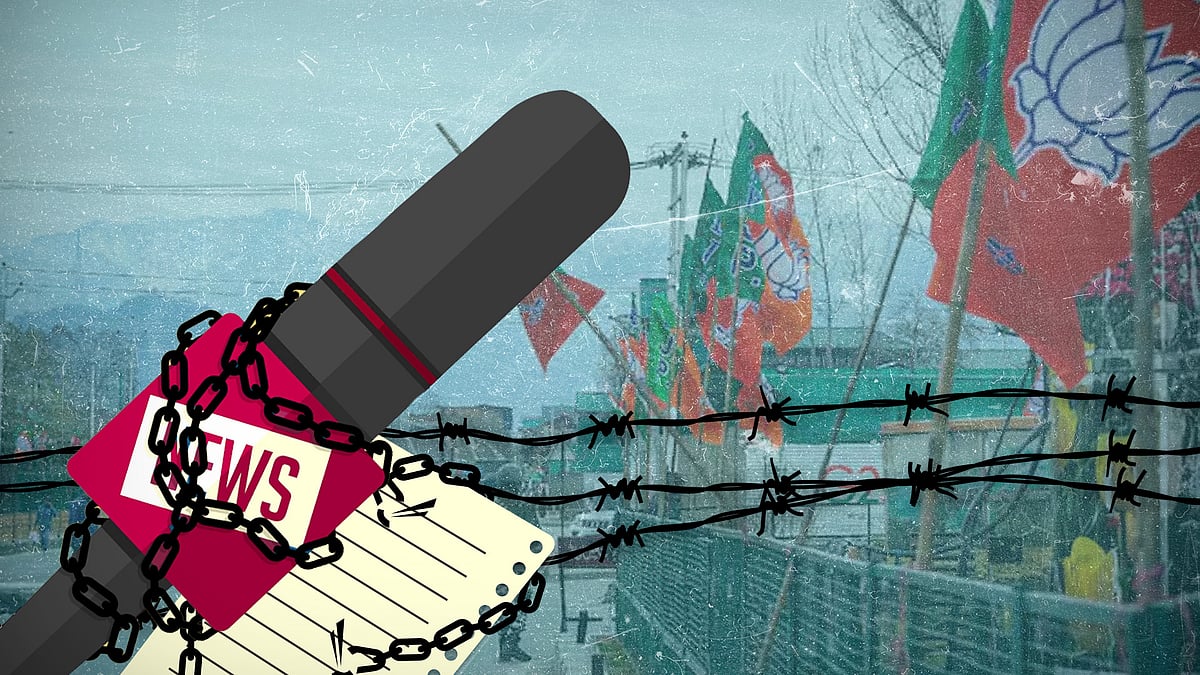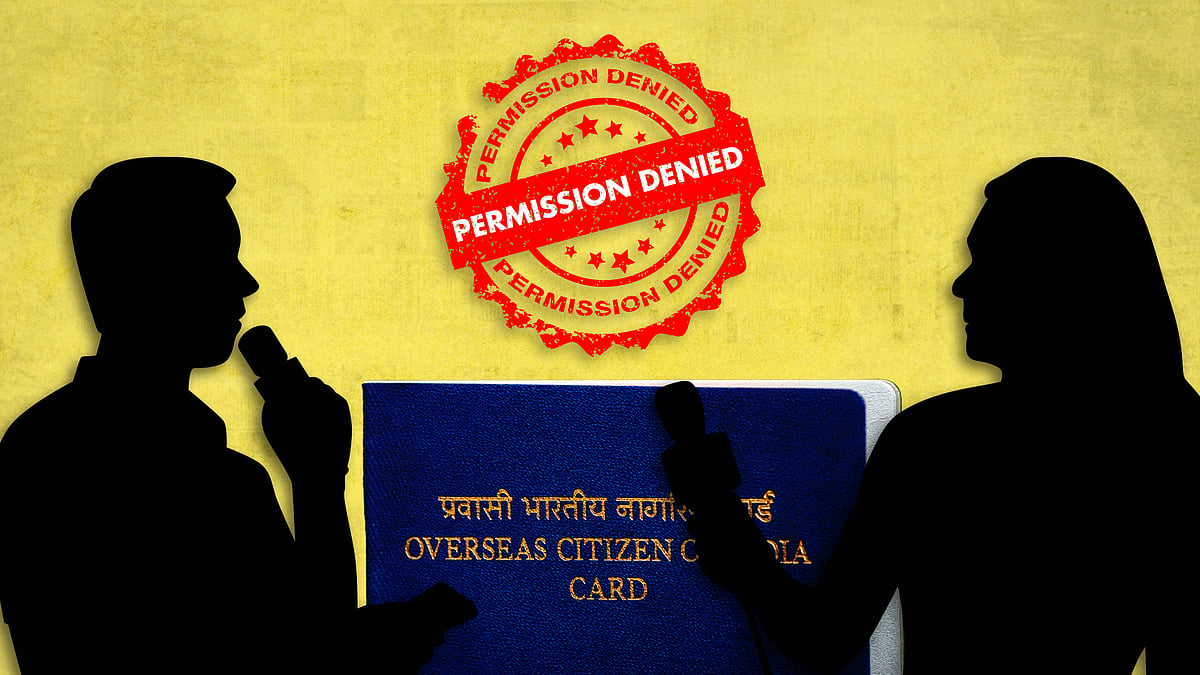Minister ‘called for tea’, read headlines with ‘sarcasm’: NYT journo recalls her time in India
The journalist was speaking at the 2024 Camden Conference on India’s rising ambitions and challenges.
When Emily Schmall was the Delhi-based South Asia correspondent for The New York Times, she and other foreign correspondents were invited by the Indian government for what seemed to be a “friendly invitation for tea”.
Tea turned into a tantrum, where “one minister or another minister would start berating us”. At one of these sessions, the “minister of information” printed out some of the stories written by the gathered correspondents and read the headlines aloud, “seemingly at random, with some sarcasm in his tone”.
Schmall, presently working for the NYT in Chicago, was talking about her time in India at the 2024 Camden Conference, which took place in February at Maine in the US. Her address on ‘Role of the media and the Modi PR machine’ delved into the government’s “increasingly brazen crackdown” on journalists and advocates of free speech – with at least 13 journalists booked under the anti-terror Unlawful Activities Prevention Act, with nine of them Muslims in Kashmir.
“To be clear,” she said, “journalism is under threat in India.”
Schmall was in Delhi for the NYT from 2020 to 2022, and also served as South Asia correspondent for Associated Press between 2018 and 2020. She recalled India’s “antagonistic” climate, saying foreign correspondents find themselves being “targets of harassment and sometimes far worse”. It’s also why she had the “badge of honour” of being summoned twice by the Modi government under the guise of tea, but mainly to “explain their reporting”.
Newslaundry previously reported on how the Modi government conducted three “internal surveys” conducted in 2020, 2021 and 2022 among journalists in India who are either foreign nationals or who are overseas citizens of India cardholders. Schmall referenced these surveys and added that beyond “reprimands”, the government “punishes those whose stories it doesn’t like with short-term visas that make renting an apartment or even buying a cell phone service, all but impossible.”
She also talked about French journalist Vanessa Dougnac, who was forced to leave India after spending decades in the country. Schmall said it was “penalty for practising journalism”. She also mentioned the raids on the BBC after the British news outlet released its documentary on Modi’s role in the Gujarat riots of 2002. Notably, following action by the central agencies, the BBC India has metamorphosed into a new firm, ‘Collective Newsroom’, for its India operations.
The NYT correspondent said nearly a third of the subcontinent is now “off limits” to foreign journalists without a special permit – “a permit that almost never comes”. For almost six years, since the abrogation of Article 370 in 2019, no foreign journalist has been permitted to report from Kashmir, she said.
Crackdown in Kashmir, Muslims ‘denigrated’
The journalist said Muslim media persons are “most directly in the crosshairs” in India. She also quoted Ashutosh Varshney as saying that the country is in the process of “creating its own Jim Crow system with Muslims denigrated into second class citizens”.
Recalling the events leading to the abrogation of Article 370, Schmall noted that the entire region of Kashmir plunged into a communication blackout in 2019 as lawmakers led by the BJP voted to take away its statehood and right to self-rule.
She said that “before and since” Kashmir reporters have routinely spoken about being “brought in for interrogations and jailed”, and the Kashmir Press Club was also “forcibly shut down” in 2022.
The journalist harked back to the incident when prominent Muslim women journalists found their images and personal information on a fake “auction” app in January 2022. Schmall said at least 20 of these women had “reported critically on how the Modi government’s policies had impacted religious minorities”.
Most of these women were in their early twenties, and working for the “hard-hitting new online journalism outlets that have proven so difficult to muzzle or control”.
Schmall said that the Modi government’s “disturbing pattern of human rights abuses”, particularly targeting Muslim minority, has been largely absolved” because of its new “strategic position” as the fastest growing large economy, and an alternative to China.
The address also highlighted how Kerala journalist Siddique Kappan was incarcerated and charged with sedition and UAPA for “intending” to report on the Hathras rape case.
She also noted that despite the hardships facing the media industry in India, young Indian women are “clamouring” to become journalists, and the media space is “still very vibrant”, thanks to the “daring” of the country’s reporters and editors.
“Journalists still play a vital function in Indian democracy, but the conditions in which they do their jobs are less and less free, and more and more dangerous,” said Schmall, adding that the Modi government is increasingly using communication channels – “from popular TV networks to WhatsApp groups” to dominate the political discourse.
She added: “The semi-mechanised propaganda that has the power to carousel votes and incite violence becomes even more treacherous in the new era of AI.”
Newslaundry has reported at length on the issues facing foreign correspondents in India, including threats, short-term visas and no access. Read our report here.
Update on April 16: In her speech, Schmall quoted Ashutosh Varshney on the “Jim Crow system”. This report did not mention the attribution. We have also removed a presumption on whom the “minister of information” is, and updated the headline. We regret the error.
 Foreign media not allowed to cover PM’s Kashmir rally
Foreign media not allowed to cover PM’s Kashmir rally Modi govt’s message for 2024, with blocking orders and an OCI cancellation
Modi govt’s message for 2024, with blocking orders and an OCI cancellation How OCI journalists in India are navigating uncertain work permissions amid govt scrutiny
How OCI journalists in India are navigating uncertain work permissions amid govt scrutiny